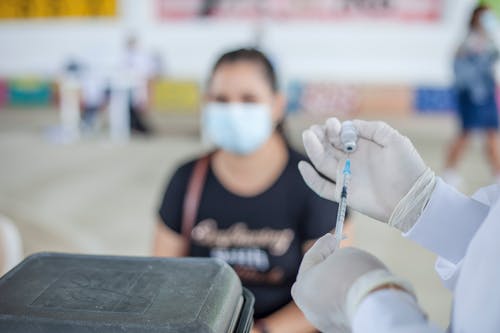The variant Omicron may respond to hydroxychloroquine, study shows.
Renewed discussions about the effectiveness of lupus, arthritis, and malaria drug hydroxychloroquine (HCQ), which has been touted for its potential role in reversing symptoms of COVID-19 as well as not believed to be effective in other circles, is getting attention again in a new study from the University of Glasgow. The study has not been published yet, but researchers are currently taking a look at how vaccine antibodies may block the spread of the latest variant, thus causing interest in hydroxychloroquine once again for treating Omicron.
The researchers have concluded that antibodies of vaccines are less effective against Omicron because it has mutated from the other coronavirus infections. This has sparked new interest in non-traditional virus options with other studies suggesting that hemp may also be effective in blocking the way the virus enters the body.

SARS-CoV-2, the team noted, “is coated in a lipid bilayer (a thin membrane made of two layers) just like our cells. When the virus enters cells, the bilayers fuse like oil droplets on the surface of water, a process termed ‘membrane fusion.’ This happens when the SARS-CoV-2 “spike protein has attached to the ACE2 receptor on the cell surface.”
An endosome is created when the cell’s membrane folds on itself. Normally the cell will keep valuable resources while getting rid of others that are considered waste. However, the study shows that Omicron has picked up mutations that improve its ability to enter cells via the endosomes.
HCQ is a drug that collects in endosomes and reduces their acidity. Making endosomes less acidic reduces membrane fusion, and HCQ could act as an antiviral medication. It would act as an immunosuppressive and anti-parasite in the body, attacking endosomes.
The first study suggesting that HCQ is effective against COVID was picked apart by expert Elisabeth Bik, who mainly questioned the speed at which it would be tested and rolled out for use despite not undergoing major clinical trials. Didier Raoult, who proposed that HCQ might be useful, filed a criminal complaint against Bik for “moral harassment, blackmail and extortion.” At the same time, the drug was suggested for use against the virus by former U.S. President, Republican Donald Trump.
A study published in the academic journal Lancet suggested that HCQ increased coronavirus deaths around that time but was actually found to have severe side effects. Other researchers have failed to find positive benefits for HCQ at all. So, the evidence for the medication is mixed at best, and whether hydroxychloroquine will be effective in treating Omicron is still hard to say. A full clinical trial of the drug is needed to further evaluate the results to see if it works for more than simply reducing the acidity of endosomes.
Molnupiravir remdesivir, dexamethasone, and antibody therapies are all available to treat COVID in the meantime. Thus, there are more options available than when the implications for the effectiveness of HCQ were first being discussed back in 2020.
Sources:
Does a new study really show that hydroxychloroquine might be effective against Omicron?
Hydroxychloroquine is proving to be a very good treatment for Covid-19


Join the conversation!